- India
- International
Back from the Gulf — Part 2: Why Kerala needs to find a new economic model, fast
Reeling under high unemployment with conditions for industrial growth still primitive and the century’s worst floods just behind it, Kerala will have to tread cautiously at the risk of alienating its demographics.
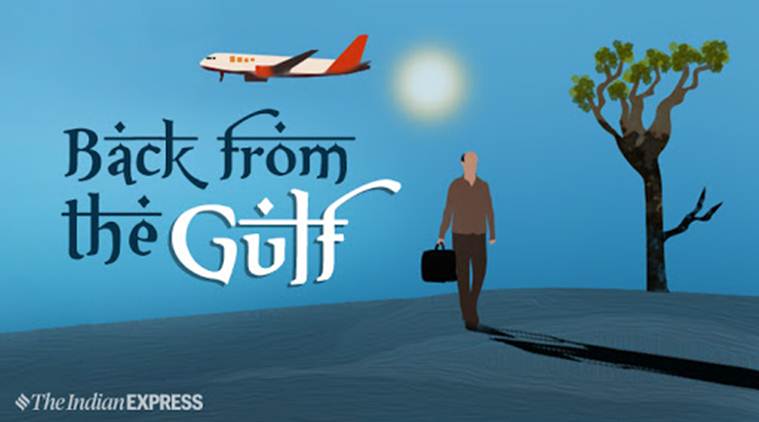 A long line of return migrants, mostly from the Gulf, are making a beeline for Kerala in what could be an economic catastrophe for Kerala.
A long line of return migrants, mostly from the Gulf, are making a beeline for Kerala in what could be an economic catastrophe for Kerala.
Ashraf Kalathilparambu, 43, remembers those good-old days when he used to come home to Kerala, once or twice a year, from Saudi Arabia, where he was employed in a French design firm. The money was good, life was easy and his family, comprising his wife and five children, were looked-after well.
Vacations particularly at home were spent with a splurge of money, he admitted. Every time he touched down in Kerala, he would often head to the nearest car showroom to buy a high-end model and then, two or three weeks later, as they prepared to depart for Saudi, he would sell it off. The margins never mattered.
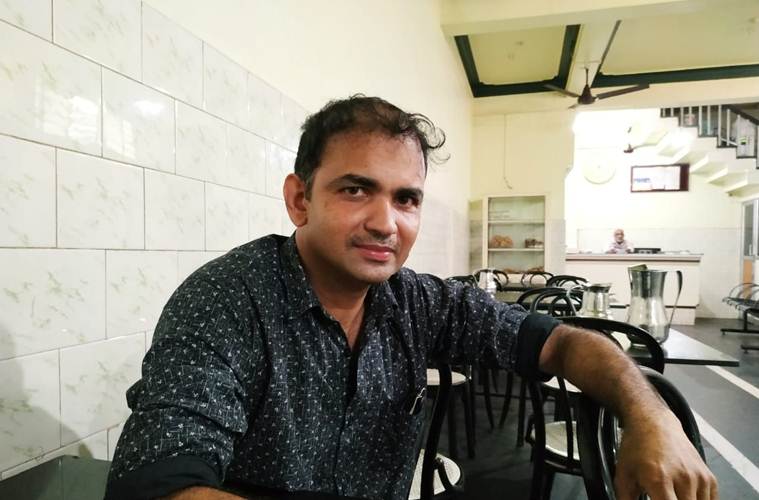 Ashraf Kalathilparambu, a native of Kakkad in Malappuram district of Kerala, was forced to return home in January this year after spending 25 years in Saudi Arabia. (Express Photo: Vishnu Varma)
Ashraf Kalathilparambu, a native of Kakkad in Malappuram district of Kerala, was forced to return home in January this year after spending 25 years in Saudi Arabia. (Express Photo: Vishnu Varma)
If his cell-phone broke down, there was no reason to get it repaired, he would simply buy another. Strolling through his hometown on evenings, if his wife loved a dress on display at a store, he would never think twice. “I never looked at the price tag. If she liked it, we would buy it,” he said. Similarly, when close family members or friends came visiting often seeking financial help at his home, Ashraf would loosen the purse strings without a second thought. Benevolence and frittering away prospered in equal measure as long as the money pumped in.
Also read | Back from the Gulf: The exodus is real and Kerala might not be prepared
And then, one day in early 2018, Ashraf’s manager walked up to him to inform him that his wages would be revised as a result of the ongoing ‘Saudisation’ policy where native Saudis are required by the government to be accommodated in private offices alongside migrant workers. The policy was envisaged in 2016 by the Kingdom as a measure to stamp out high unemployment among the locals.

To compensate bringing highly-paid Saudis into the hierarchy, private firms were forced to cut salaries of migrant workers to stem revenue losses. Despite being assured by his senior staff that he was in the ‘safe zone’, Ashraf was stunned to learn that his salary was being revised to 4,000 SR per month, instead of the previous 10,000 SR per month. Additionally, increments were shot down, benefits for children’s education were slashed and any hope of promotions in the future were quashed.
“It’s a way of practically getting rid of us. They are not directly laying us off, but just making sure we’ll quit on our own,” said Ashraf.
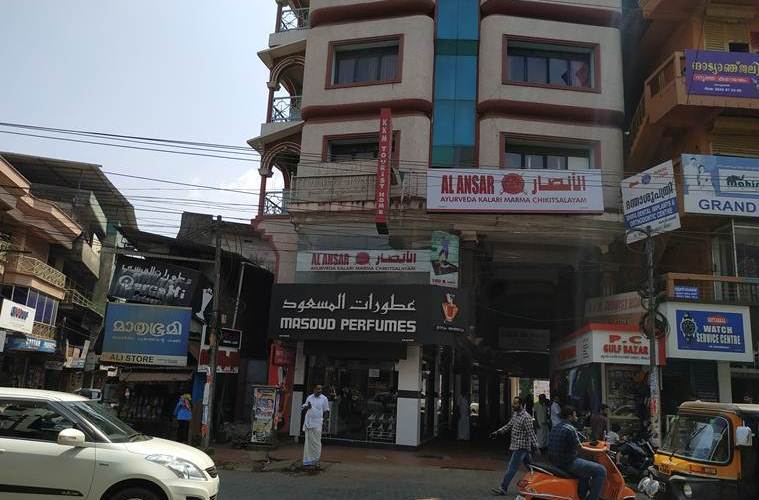 Towns like Kottakal are replete with stores selling high-end perfumes imported from abroad. (Express Photo: Vishnu Varma)
Towns like Kottakal are replete with stores selling high-end perfumes imported from abroad. (Express Photo: Vishnu Varma)
To cut back on spending, Ashraf introduced quick changes in his life by translocating his entire family to Kerala and getting his children admitted to government schools there. He sold off his Skoda SUV and shifted to a smaller place. Even as his friends and former colleagues around him were laid off and left for Kerala in droves, he remained in Saudi, appearing for interviews in quick succession to eke out a position where he could get a salary close to what he was earning at his former job. While work experience was his advantage, his academic record (he had dropped out after 12th grade) proved to be a liability.
Also read | Malayalis in the Gulf are finally beginning to write about the land they live in
After a year, Ashraf gave up. It wasn’t worth the effort, he thought to himself, and on January 19, 2019, he flew back with a heavy heart from Saudi, a country he spent 25 years in.
***
Ashraf Kalathilparambu is not alone.
A long line of return migrants, mostly from the Gulf, are making a beeline for Kerala in what could be an economic catastrophe for the southern state. Reeling under high unemployment with conditions for industrial growth still primitive and the century’s worst floods just behind it, Kerala will have to tread cautiously at the risk of alienating its demographics.
A migration study by the Centre for Development Studies (CDS) in Thiruvananthapuram in September last year attests that emigration is falling and return migration is on the rise. According to the study, emigration figures showed a negative growth of 11.6 per cent compared to 2013. On one hand, while Saudisation-like policies in the Gulf have swept migrant jobs clean, even for positions that are available, the wage levels are simply unviable for people from the state.
Here in this part of the state, where over 70 per cent of households have an emigrant or a return migrant, ‘pravasis’ or expatriates are held in high esteem. Their money drives the local economy, is responsible for overall affluence in the region and politicians fight for their attention. In 2018, remittances sent from the Middle East, where nearly 85 per cent of Kerala’s expatriates live, equalled Rs 85,000 crores, forming a major chunk of the state’s economy. In the aftermath of the floods last year, the expatriate community came together to pool massive funds which were donated to the chief minister’s disaster relief fund.
But if Kerala’s share of migrants drops down, which is predicted to happen, it spells untold economic and social misery for the state.
“It will dismantle our family budgets. Our economic structure will collapse. Especially, Malabar’s progress and infrastructure, which hinges on ‘pravasi’ funds, will come to a standstill,” said Haneefa Muneer, the state general secretary of the Pravasi League, the wing of the Indian Union Muslim League (IUML) that takes care of migrant affairs. IUML is the dominant political party in Malappuram district, that sends the most migrants from the state.
“I, myself, am an example. My son lost a job at a shop in Riyadh. My life has been wrecked and I have lost my income. My brothers-in-law, two of them, have also come back. Their families depend on them,” he added.
S Irudaya Rajan, one of the two authors of the CDS study, tells a grim story of social impact.
“One Malayali is supporting 4-5 people at home. If he’s coming back and not employed, what will happen to his household? We are talking about 2 lakh households who were earlier getting Rs 20,000 as monthly income,” says Rajan, over phone.
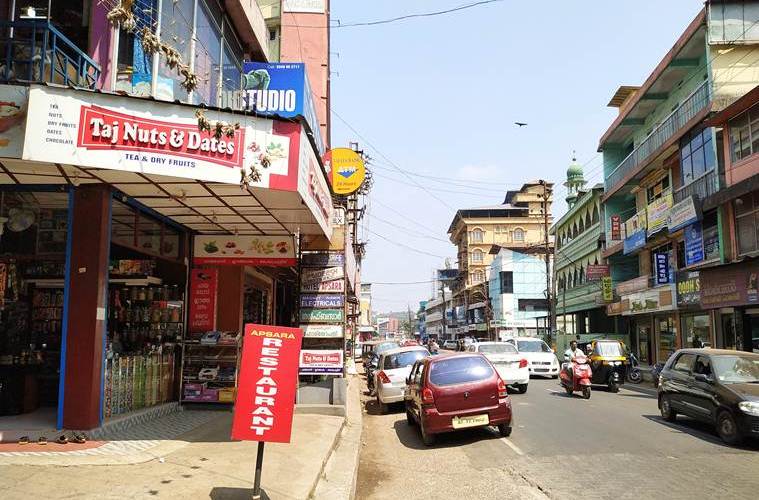 A street in Kottakkal town of Kerala. (Express Photo: Vishnu Varma)
A street in Kottakkal town of Kerala. (Express Photo: Vishnu Varma)
“In what way can the government identify them and try to rehabilitate them? Otherwise, they will go back to poverty. They may have a big house, but no food. They may have a car, but no money for fuel. They were once above the poverty line, and then they slip under it.”
***
Back in Kerala, Ashraf, for the first time in three years, rode a public bus to meet this reporter in Kottakkal, a town 11 kilometres from his home in Kakkad in Malappuram district. With no job, his savings gradually flushing out and six mouths to feed, Ashraf knew better than to drive a car and spend on fuel. Those days, when he would spend recklessly by his own admission, are sharp in his memory. But he doesn’t have time to dwell on them.
“Namukku pidicha nikkanengil valare prayasamanu (It’s very hard for us to survive),” Ashraf sighs, as he sips tea at a restaurant in Kottakkal.
As long as he worked in the Gulf and sent money home, there was a certain social entitlement he had. And now, it’s slipping away, he implies.
“Here, everyone is observant. The neighbours will notice if you forgot to sweep the driveway in the morning. Or if you didn’t wash your car. If you go to a public function, they’ll notice if you have repeated an outfit. This is how people here are. So if you need to stick in here, you need cash. Or you need to sink low.”
Kunjammad Kutty, who looks after the ‘pravasi’ cell of the CPM in Kozhikode district, has regularly observed patterns of social stigma attached to return migration.
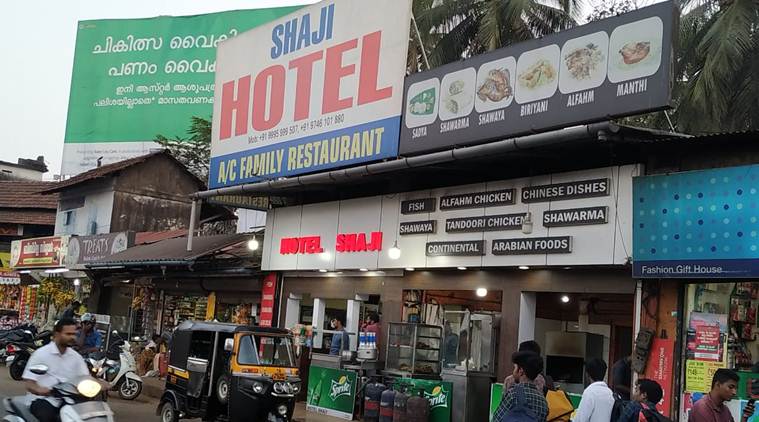 Restaurants serving high-end Arabic cuisine are common in these parts of Kerala. (Express Photo: Vishnu Varma)
Restaurants serving high-end Arabic cuisine are common in these parts of Kerala. (Express Photo: Vishnu Varma)
“In some families, I have seen women and children spending money lavishly as it comes in. They have no clue about the working conditions their husbands face abroad. And when the money suddenly stops, they don’t know how to adjust because they are used to a certain kind of grandeur. It creates huge problems,” he explains.
Towards that end, building a palatial home, he adds, has somehow been at the heart of the expatriate psyche. Many of them end up pooling their entire savings into constructing a massive home even if it outstretches their spending limit. “If you go deeper into rural areas in Kozhikode, Malappuram and Kannur, you will come across these houses. I’m awestruck by the grandeur. It’s like a palace. They may not have the financial means to even maintain the house.”
The immediate result of stigma that arises out of return migration is succumbing to societal pressure, mounting debts and afterwards, a natural descent into poverty. In the absence of a regular income, the family stares at the prospects of social isolation, moving further and further away from communities.
In the International Journal of Information Movement, Muhammed Jabir MM, a research scholar at the university of Delhi, writes, “The impact of forced or involuntary return makes their life more vulnerable with the immediate loss of jobs and not having pre-departure planning to home society. There are many cases where the average non-resident Keralite returning home after decades do nothing and sink into depression.”
Past studies by the CDS have also shown how low entrepreneurial opportunities in the state limited the productivity of the migrants, resulting in scarce contributions to the state’s economy.
Over time, responding to the urgency of the situation, there have been efforts to arrest such deviations. One among them is the formation of the Kerala Pravasi Sangham (KPS), the largest community for rehabilitation of return migrants in the state. Even though it doesn’t hold a political leaning, the outfit works closely with parties in power to extract benefits for expatriates such as pension and devise new schemes that would help them set up businesses.
Ashokan, a KPS secretary who oversees five panchayats in Ernakulam district, takes part in regular meetings at the panchayat-ward level to sensitise return expatriates about the government schemes available to them and the welfare benefits they are entitled to. There’s also a host of potential for these workers, he adds, provided they actively engage with the community to work and earn their income.
“From helping to bring back dead bodies from abroad, provide loans for new ventures, financial aid for health emergencies and weddings, there’s a lot of stuff we do. We maintain a daily register of all returnees across skill categories in every panchayat and we set up workshops to help them find jobs,” he said.
The government has already responded in a positive manner to the welfare of expatriates, he notes, by increasing the pension from Rs 500 to Rs 2000 per month for those above the age of 60. But there needs to be greater intervention at the bureaucratic level, Ashokan stresses. “Single-window clearance for easy availing of loans, flexible rehabilitation packages, perhaps the idea of reservation for them in jobs, helping them with marketing strategies…all these are good ideas,” he said.
“Make no mistake, just as our Army jawans secure our borders, the ‘pravasis’ guard our economy. They are very important.”
Kerala is also the only state in the country to have an entire government department set up to address the grievances of non-resident Keralites. ‘NORKA Roots’ clears applications for loans from ‘pravasis’ to open businesses, helps with certificate attestation to migrate abroad and under the ‘santhwanam’ programme, disburses assistance to disadvantaged families for health and marriages.
A NORKA Roots coordinator in Kannur said phone calls, enquiring about ‘pravasi’ welfare schemes, have swelled considerably in recent months, most of the callers asking about the formalities of applying for a loan to purchase commercial vehicles or kick-start dairy farming.
***
So can Kerala’s existing infrastructure sustain the deluge of return migrants that’s likely to follow in the years to come?
That’s the big question haunting the state’s chief economists and policy experts as they rack their brains to institute new mechanisms for their rehabilitation and work out ways to avoid their productive years being wasted. With the void of Gulf-bound migrants being filled in the labour space by migrant workers from Uttar Pradesh, Bihar, Assam, West Bengal and Odisha in the state, Kerala is in the midst of a labour influx of sorts. That the state has the highest unemployment rate in the country complicates matters more.
“In the light of significant demographic pressures like ageing, Kerala has to slowly move towards a new model from the remittance-dependent economy that it is today,” Rajan wrote in The Indian Express in September last year.
Ashraf Illikalthura, who spent 26 years in the Gulf before returning to Kerala last year, minces no words about the impact of the return of ‘pravasis’ to the state. “Nations like UAE developed with the blood and sweat of Malayalis. Today, Kerala is where it is today, because of ‘pravasis’,” he says.
“If all of them come back, at some juncture, Kerala will be finished.”
Apr 19: Latest News
- 01
- 02
- 03
- 04
- 05






































